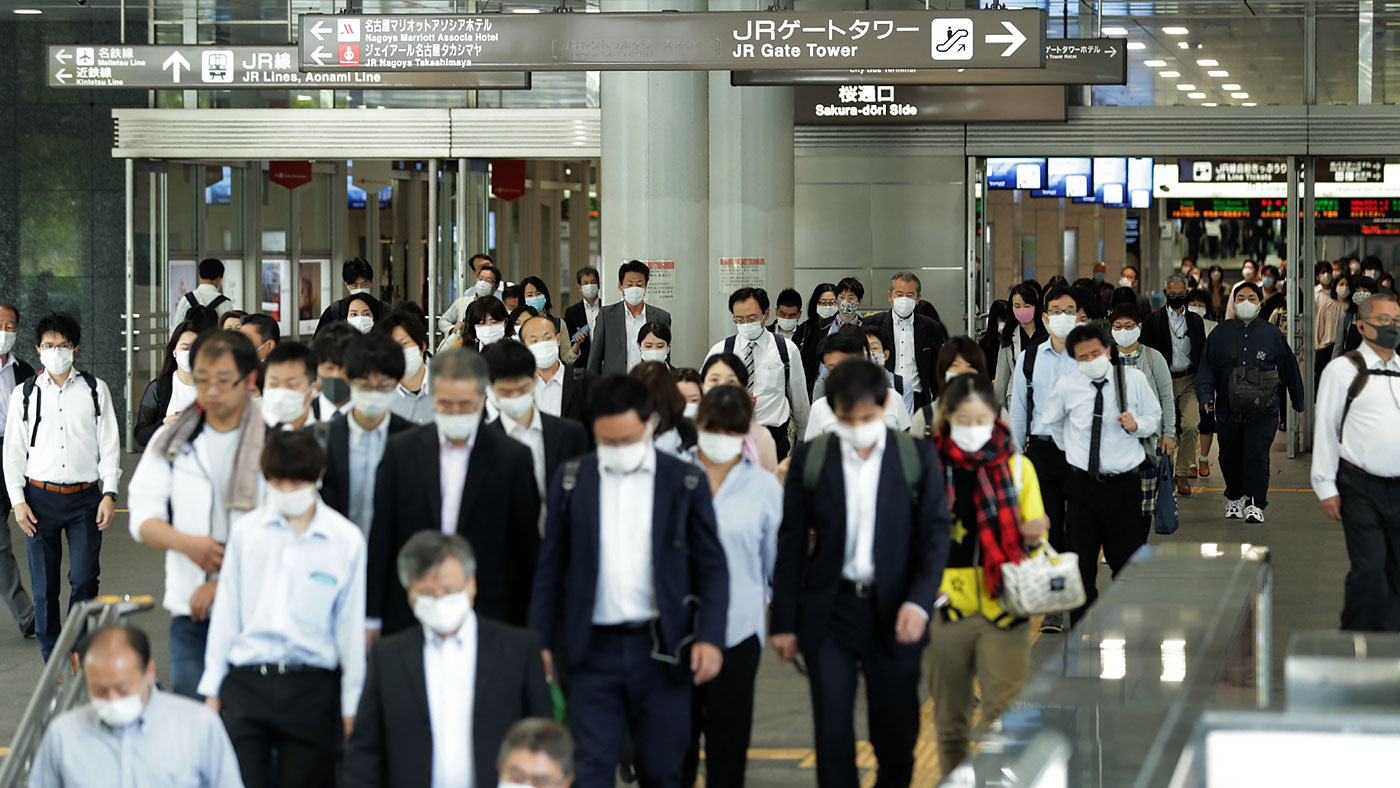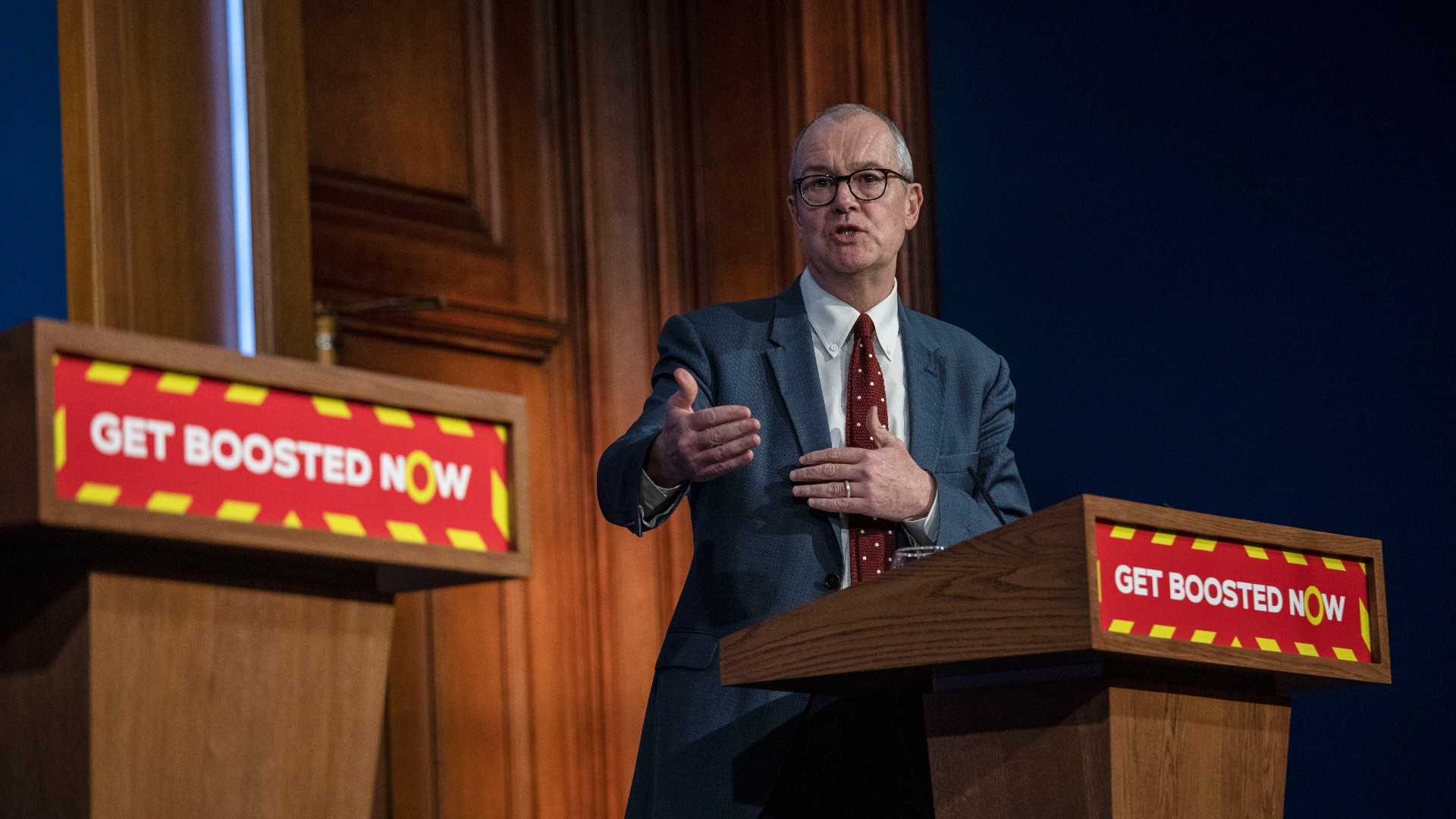No lockdown, little testing, few deaths: why Japan is a coronavirus outlier
Only 744 people have died in country of 126 million - and infection rate is falling

A free daily email with the biggest news stories of the day – and the best features from TheWeek.com
You are now subscribed
Your newsletter sign-up was successful
With a cluster of early cases, an ageing population and a laissez-faire approach by the authorities, Japan appeared to be on course for a severe coronavirus outbreak.
Yet new excess mortality data appears to confirm official claims that Covid-19 has not run rampant in the East Asian nation.
“Tokyo has not seen an increase in overall deaths during the coronavirus outbreak,” reports The Japan Times. Indeed, the number of fatalities in the capital in the three months to March was slightly below the average for the time of year, according to city authorities.
The Week
Escape your echo chamber. Get the facts behind the news, plus analysis from multiple perspectives.

Sign up for The Week's Free Newsletters
From our morning news briefing to a weekly Good News Newsletter, get the best of The Week delivered directly to your inbox.
From our morning news briefing to a weekly Good News Newsletter, get the best of The Week delivered directly to your inbox.
In many countries with severe outbreaks, including the UK, excess mortality figures have revealed large numbers of deaths that have not been included in official coronavirus figures - but fears that the Japanese death toll might also be an underestimate seem to be unfounded.
Coronavirus outlier
As “one of the first countries besides China to have been affected by Covid-19, and with the highest percentage of elderly people in the world”, Japan might have been expected to take swift and decisive action, said The Diplomat in March. Instead, “every step of the way mismanagement has been rife”.
–––––––––––––––––––––––––––––––For a round-up of the most important stories from around the world - and a concise, refreshing and balanced take on the week’s news agenda - try The Week magazine. Start your trial subscription today –––––––––––––––––––––––––––––––
A free daily email with the biggest news stories of the day – and the best features from TheWeek.com
Japan “appears to be doing everything wrong”, agrees Foreign Policy. “It has tested just 0.185% of its population”, compared with 2.9% in the UK, and “its social distancing has been half-hearted”.
In April, the government asked Japanese people to avoid large gatherings, but did not introduce a compulsory lockdown.
“Though the streets are noticeably quieter than normal, subways and buses are still jammed with commuters,” said The Washington Post shortly after the measures were introduced. “Many bars, restaurants and cafes are abuzz.”
Prime Minister Shinzo Abe last week lifted the restrictions everywhere except Tokyo, Osaka and Hokkaido, where they are expected to remain until the end of May.
Explaining the success
Despite criticism of the government’s response, the coronavirus outbreak seems to be in retreat. Hospitals have recorded “a sharp fall in new infections”, says the BBC, and in a country of 126 million people, the daily death toll has remained below 20 for most of the past week.
No one knows why Japan has escaped the worst of the pandemic, but the low infection rate has been “credited by some to Japanese societal norms”, says Professor Craig Mark of Tokyo's Kyoritsu Women's University in an article on The Conversation.
“Bowing instead of handshakes and hugs, the use of masks in flu season and generally high standards of personal hygiene” may all have helped, Mark suggests.
Another possible explanation is that Japan may be dealing with a slightly different variant of the virus. Researchers in the US have suggested that mutations circulating in Asia, Europe and North America may have different levels of virulence.
–––––––––––––––––––––––––––––––For a round-up of the most important stories from around the world - and a concise, refreshing and balanced take on the week’s news agenda - try The Week magazine. Start your trial subscription today –––––––––––––––––––––––––––––––
-
 The 8 best TV shows of the 1960s
The 8 best TV shows of the 1960sThe standout shows of this decade take viewers from outer space to the Wild West
-
 Microdramas are booming
Microdramas are boomingUnder the radar Scroll to watch a whole movie
-
 The Olympic timekeepers keeping the Games on track
The Olympic timekeepers keeping the Games on trackUnder the Radar Swiss watchmaking giant Omega has been at the finish line of every Olympic Games for nearly 100 years
-
 The new Stratus Covid strain – and why it’s on the rise
The new Stratus Covid strain – and why it’s on the riseThe Explainer ‘No evidence’ new variant is more dangerous or that vaccines won’t work against it, say UK health experts
-
 The science behind regrowing missing teeth
The science behind regrowing missing teethUnder the Radar A series of recent breakthroughs may offer those with dental issues something to chew on
-
 The best health care systems in the world
The best health care systems in the worldIn the Spotlight Getting sick has never felt better
-
 Covid-19: what to know about UK's new Juno and Pirola variants
Covid-19: what to know about UK's new Juno and Pirola variantsin depth Rapidly spreading new JN.1 strain is 'yet another reminder that the pandemic is far from over'
-
 Vallance diaries: Boris Johnson 'bamboozled' by Covid science
Vallance diaries: Boris Johnson 'bamboozled' by Covid scienceSpeed Read Then PM struggled to get his head around key terms and stats, chief scientific advisor claims
-
 Good health news: seven surprising medical discoveries made in 2023
Good health news: seven surprising medical discoveries made in 2023In Depth A fingerprint test for cancer, a menopause patch and the shocking impacts of body odour are just a few of the developments made this year
-
 How serious a threat is new Omicron Covid variant XBB.1.5?
How serious a threat is new Omicron Covid variant XBB.1.5?feature The so-called Kraken strain can bind more tightly to ‘the doors the virus uses to enter our cells’
-
 Diamond Princess cruise ship, site of mass COVID outbreak, returns to service after nearly 3 years
Diamond Princess cruise ship, site of mass COVID outbreak, returns to service after nearly 3 yearsSpeed Read